Search results 17 Found
Die Hochzeit von Lyon. Novelle. Mit vier [signierten] Lithographien von Hans Fronius. Herausgegeben und mit einem Nachwort von Erich Fitzbauer.
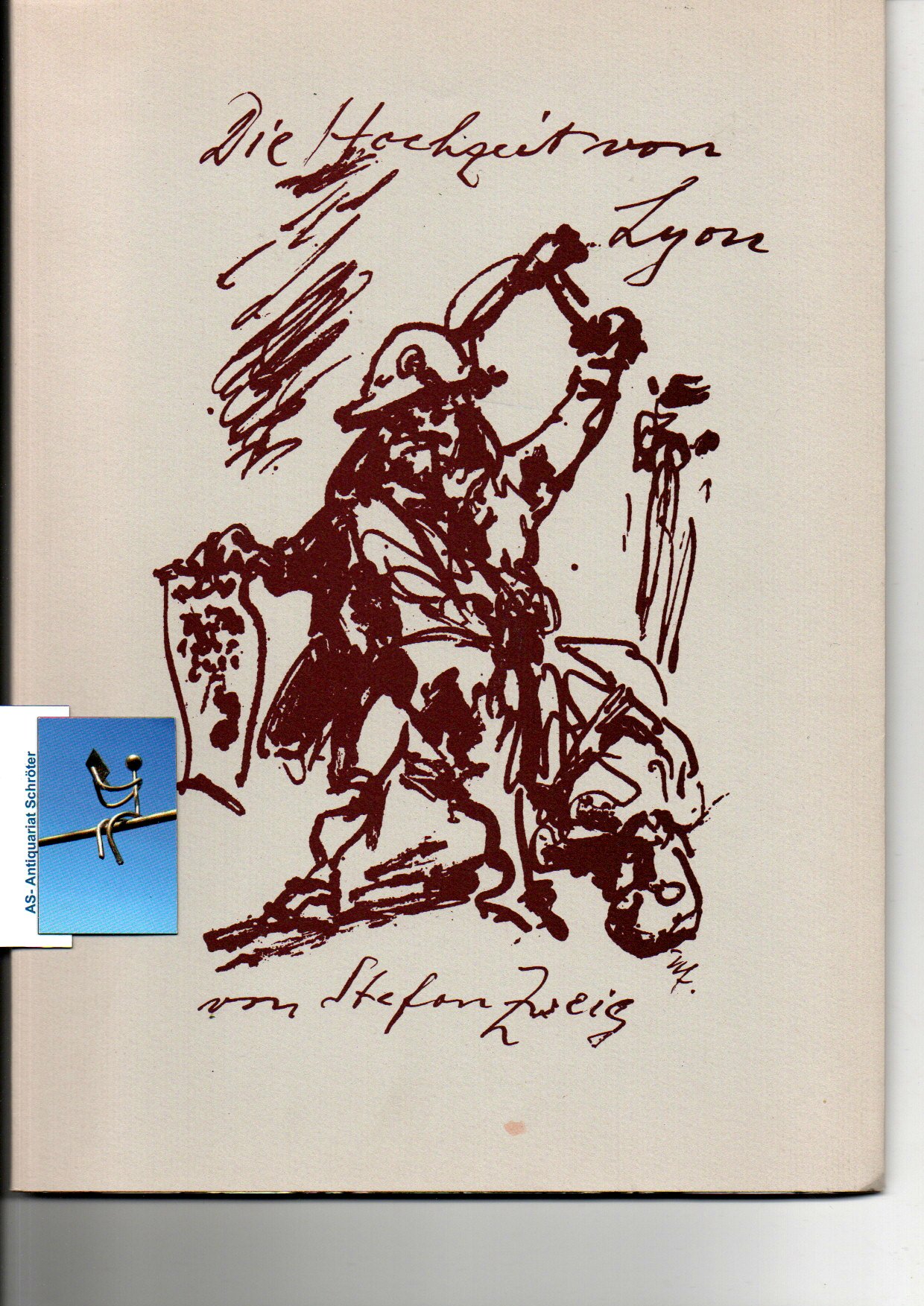
Die Hochzeit von Lyon. Novelle. Mit vier [signierten] Lithographien von Hans Fronius. Herausgegeben und mit einem Nachwort von Erich Fitzbauer.
Zweig, Stefan (1881-1942):
- Publisher: Wien, Edition Graphischer Zirkel
- Date published: 1980
- Format: Softcover
29(1 + 4 Graphiken) S., OKarton mit illustriertem OU (dieser mit Abriebspuren), 4°, Druck auf Zerkall-Bütten, Satz in der Times Antiqua. Eingebunden sind 4 ganzseitige Original-Lithographien von Hans Fronius, sämtlich signiert. Exemplar 305 von 400 Exemplaren. 13. Druck der Edition. Tiessen 79. Erschienen zum 100. Geburtstag von Zweig. Fine copy with 4 handsigned original lithographics. Sprache: Deutsch Gewicht in Gramm: 1000
antiquariatschrterutajaninestrmer-95.75-cff157e7be8bbb08c806827013ba70d9
Stefan and Friderike Zweig: Their Correspondence, 1912-1942.

Stefan and Friderike Zweig: Their Correspondence, 1912-1942.
ZWEIG, Stefan and FRIDERIKE.
- Publisher: Hastings House,
- Date published: 1954
NY:: Hastings House,. Very Good in Very Good dust jacket. 1954. Hardcover. Translated from the German and edited by Henry G. Alsberg. First edition thus. INSCRIBED by Friderike Zweig to a previous owner in 1958. Very good in a very good (moderate edge wear with a large chip on the front panel) dust jacket. ; 344 pages; Signed by Author .
grendelbooksa-100.00-2c2f3567eea043593f0e559aa0f93461
Die Unsichtbare Sammlung - mit zwei Holzstichen von Emil Zbinden.
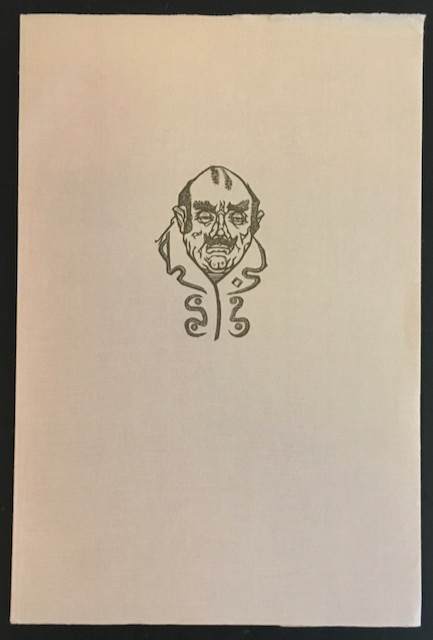
Die Unsichtbare Sammlung - mit zwei Holzstichen von Emil Zbinden.
Zweig, Stefan / Zbinden, Emil
- Publisher: Frankfurt/M.: S. Fischer Verlag, (1988), herausgegeben zum 40-Jahr-Jubiläum des Vereins für Originalgraphik, Zürich, und zum 80. Geburtstag von Emil Zbinden, Bern.
- Date published: 1988
- Format: Softcover
21 S., 4?, englische Broschur, mit zwei Holzstichen von Emil Zbinden, auf Voritelseite Widmung von Emil Zbinden. Sprache(n)/language(s): deSehr guter Zustand.
antiquariatimseefeldernstjetzer-103.74-105aceb75621e04881a259902367ff9c
Fragment einer Novelle. Mit 4 Lithographien von Hans Fronius. Hrsg. von Erich Fitzbauer.
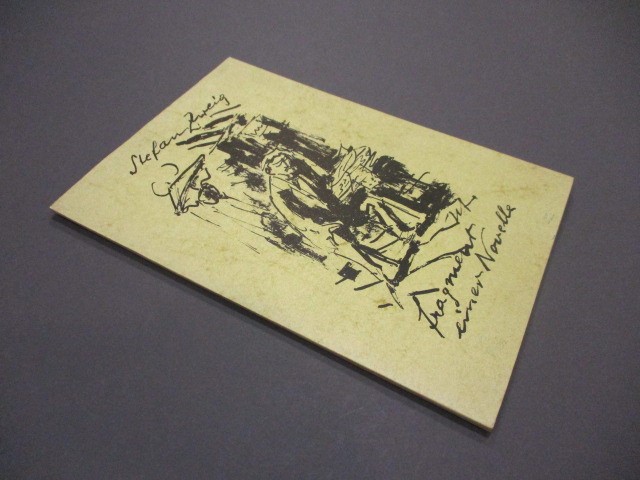
Fragment einer Novelle. Mit 4 Lithographien von Hans Fronius. Hrsg. von Erich Fitzbauer.
Zweig, Stefan:
- Publisher: Wien, Verlag der Internationalen Stefan Zweig Gesellschaft,
- Date published: 1961
- Format: Softcover
10 Bll. 4 Original-Lithographien von Hans Fronius. Nr. 8 von 500 von Hans Fronius signierten Exemplaren. - Die Erstausgabe war 1929 erschienen.- Titel mit einer 5-zeiligen, signierten und datierten Widmung von Hans Fronius. - Leicht gebräunt. *** *** Copyright: Matthaeus TRUPPE Buchhandlung & Antiquariat - Stubenberggasse 7 - A-8010 Graz - ++43 (0)316 - 829552 *** *** Sprache: Deutsch Gewicht in Gramm: 200 Gr.-8°. OKart. (kl. Gebrssprn.).
matthaeustruppeantiquariat-153.68-72ddd9b279746d90484060bf3aedd0d0
Frühlingsfahrt durch die Provence. Ein Essay. Herausgegeben von Erich Fitzbauer. (= Fünfte Sonderpublikation der Internationalen Stefan-Zweig-Gesellschaft).
Frühlingsfahrt durch die Provence. Ein Essay. Herausgegeben von Erich Fitzbauer. (= Fünfte Sonderpublikation der Internationalen Stefan-Zweig-Gesellschaft).
[Fronius, Hans]. - Zweig, Stefan.
- Publisher: Wien, Verlag der Internationalen Stefan-Zweig-Gesellschaft, 1965.
- Date published: 1965
- Format: Softcover
Nr. 321 von 450 im Druckvermerk vom Künstler sign. Exemplaren auf Zerkall-Bütten. - Hier alle sieben Lithographien von Fronius eigenhändig signiert. - Umschlagränder tlw. leicht bestoÃen. - Tiessen II, 50. ge Gewicht in Gramm: 2000 Qu.-Fol. Mit 7 sign. Lithographien von Hans Fronius. 5 Bll., OKart. m. OUmschlag.
versandantiquariatwolfgangfriebes-215.45-5999ee62d0146eba3c297b8aefc1deb2
EEN SCHAAKNOVELLE
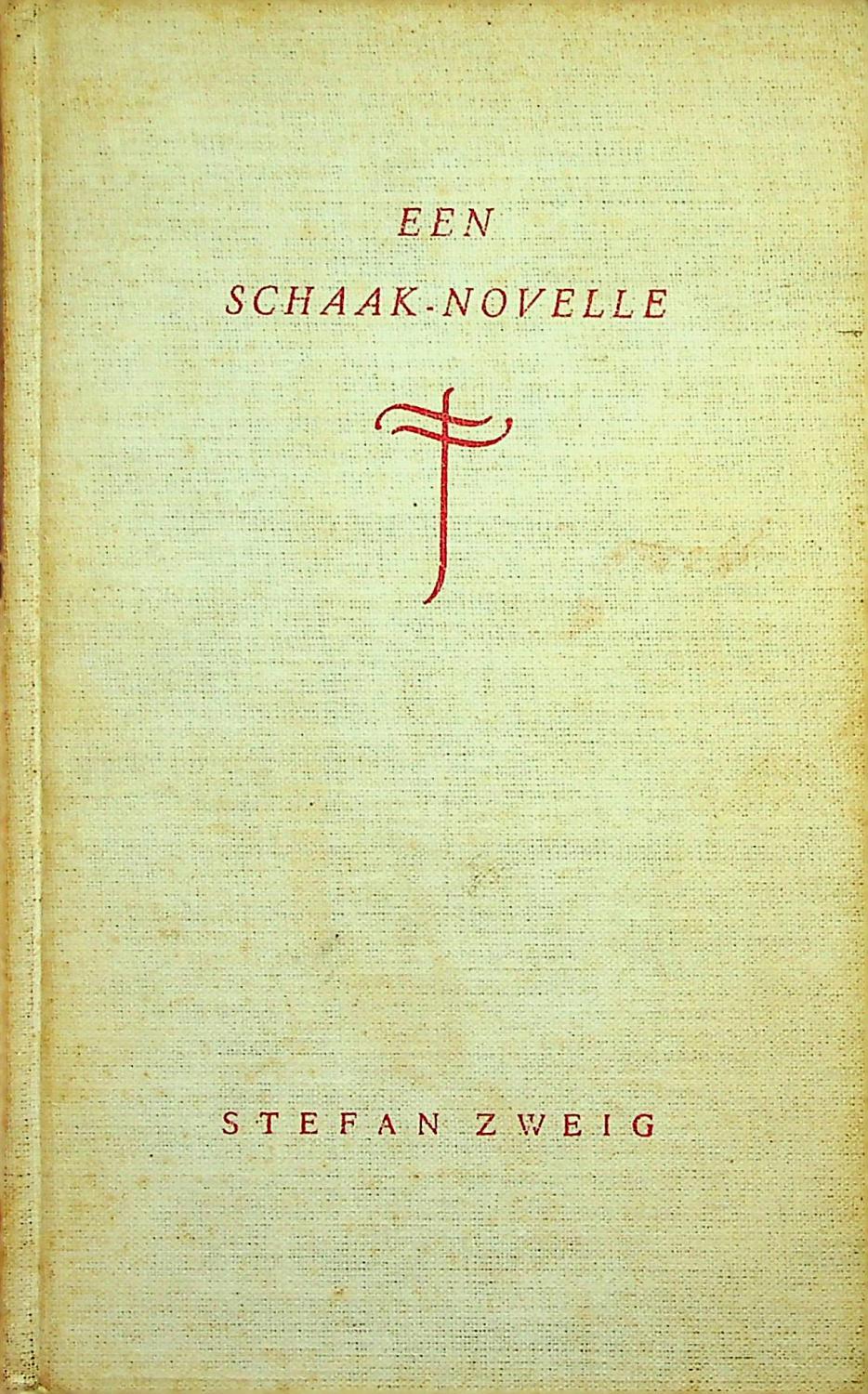
EEN SCHAAKNOVELLE
Stefan Zweig
- Publisher: Uitgeverij Keesing., Amsterdam
- Date published: 1949
- Format: Hardcover
Signed by the translator dr. Paul Huf, with the text: "Voor mijn gullen gastheer Ad Vroom en zijn charmante vrouw, deez Kleine herinnering aan de zoo inspirerende Kerstvriering met het V&D personeel. Zwolle 1919(22/xII)49, Paul Huf de vertaler en verteller". Ad Vroom wos one of the family members of the founders of Vroom & dreesman (V&D). He had a shop in Zwolle and organised the purchase of toys for the shop.
ofkefke-254.88-3718e3aa408ce46436fc0e27d4fab70a
Brief m.e.U. Marienbad, Villa Souvenir 23.7.1937. 1 S. 8°.

Brief m.e.U. Marienbad, Villa Souvenir 23.7.1937. 1 S. 8°.
Zweig, Stefan (1881-1942).
- Format: Hardcover
An den Wiener Regisseur Leon Epp (1905-1968) über das Aufführungsrecht für 'Legende eines Lebens' (1919). ". Nur kommt es mir heute etwas schwerfällig im Dialog vor und müsste auf das energischeste gekürzt werden . Ich will nur bemerken, dass das Aufführungsrecht im Buchvermerk an Felix Bloch Erben Berlin gebunden erscheint. Ich bitte sich aber nicht an diese Herren zu wenden, da es inzwischen an das I n t e r n a t i o n a l C o p y r i g h t B u r e a u . L o n d o n . übertragen worden ist .". Zu einer Aufführung in seinem Insel-Projekt am Parkring ist es erst 1945 gekommen. - Verso mit Eingelangt / Erledigt-Stempel (26.VII. / 8.VIII.1937). Sprache: Deutsch.
georgfritschantiquariat-897.70-68edda9d17e8c0dde3f93d5382fb4edb
Frans Masereel
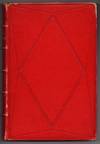
Frans Masereel
[Masereel, Frans]; Arthur Holitscher, Stefan Zweig, [Gustave Ascher]
- Publisher: Axel Juncker Verlag
- Date published: 1923
Berlin: Axel Juncker Verlag, 1923. Limited Edition (#88 of 150). Leatherbound. Very Good. SIGNED. 177 pp. Large octavo [26 cm] bound in full red Morocco with five raised bands and the title gilt on the backstrip. Boards embossed in blind. Top edge gilt. Marbled endsheets and pastedowns. Rubbing and wear to the raised bands of spine as well as edges and corners of boards. Small bookplate on the front pastedown. Signed by Frans Masereel on the page bearing his self-portrait [at page 32]. Includes 42 woodcut illustrations and a pasted-in photograph of Masereel on verso of title. Text in German. This edition was limited to 150 numbered copies on handmade paper, this is copy number 88. "Dieses werk wurde im jahre 1923 in der Buchdruckerei Gustav Ascher, Berlin gedruckt. 150 Exemplare wurden auf Butten gesondert abgezogen, numeriert, vom Kunstler signiert und in einen mit der Hand gefertigten Einband gebunden. Dieses Exemplar tragt die Nummer: 88
kensandersrarebooksa-1000.00-00e538a36e09f9f89c12b8e5d8b34b0d
The World of Yesterday
The World of Yesterday
Zweig, Stefan
- Publisher: Viking, New York
- Date published: 1943
- Format: Hardcover
First American Edition. Original cloth. Near Fine in Very Good Dust Jacket with minor edge tears. Laid in is a typed letter signed by Zweig. The lettter is on stationary of The Wyndham and is dated "6.Mai 1941" It begins: "Lieber Robert! / Es tut mir aufrichtig leid, dass bisher Dein Freund Stefan Zweig Dir noch nicht augf einen grunen Zweig helfen konnte, aber hoffentlich ergibt sich bald endlich eine Gelegenheit." Zweig ends the letter "Herzlichst Dein" and signs it "Stefan Z." There is no address on the letter and no envelope present. Could Robert possibly be Musil?
prideprejudicebooks-1252.00-9ea7192666a4dea2d4f1efdbb9963e8c
Das Lamm des Armen [signiert / inscribed]
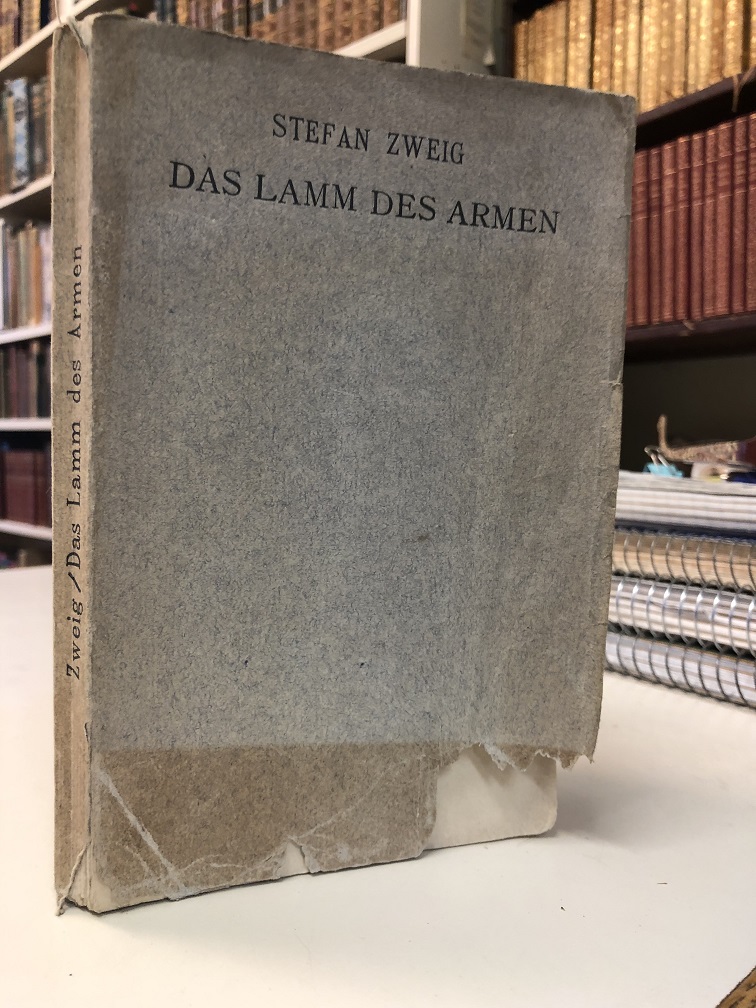
Das Lamm des Armen [signiert / inscribed]
Zweig, Stefan
- Publisher: Insel, Leipzig
- Date published: 1929
- Format: Softcover
138 pages. Authorial inscription to first leaf. Toning and loss to front cover; four pages 'repaired' at some point with non archival tape. 7.5 x 5 inches.
theoddbook-1400.00-a51dd4922224304edc2ef7e9402db477
Beware of Pity
Beware of Pity
Zweig, Stefan
- Publisher: The Viking Press, New York
- Date published: 1939
- Format: Hardcover
First American edition, translated from the German by Phyllis and Trevor Blewitt. 8vo. 498 pp. Bookplate of Liliore Green Palmer laid in. Signed by Zweig in purple to the first blank. Newly bound in full blue paneled leather, housed in matching slipcase.
karolkrysikbookscpbfa-1468.64-826d952803aaedb82bb3926abfae1899
Beware of Pity
Beware of Pity
Zweig, Stefan
- Publisher: The Viking Press
- Date published: 1939
New York: The Viking Press, 1939. First Edition. Hardcover. Good. First American edition, translated from the German by Phyllis and Trevor Blewitt. 8vo. 498 pp. Bookplate of Liliore Green Palmer laid in. Signed by Zweig in purple to the first blank. Newly bound in full blue paneled leather, housed in matching slipcase.
karolkrysikbookscpbfa-1473.20-826d952803aaedb82bb3926abfae1899
The World of Yesterday
The World of Yesterday
Zweig, Stefan
- Publisher: Viking
- Date published: 1943
New York: Viking. First American Edition. Original cloth. Near Fine in Very Good Dust Jacket with minor edge tears. Laid in is a typed letter signed by Zweig. The lettter is on stationary of The Wyndham and is dated "6.Mai 1941" It begins: "Lieber Robert! / Es tut mir aufrichtig leid, dass bisher Dein Freund Stefan Zweig Dir noch nicht augf einen grunen Zweig helfen konnte, aber hoffentlich ergibt sich bald endlich eine Gelegenheit." Zweig ends the letter "Herzlichst Dein" and signs it "Stefan Z." There is no address on the letter and no envelope present. Could Robert possibly be Musil? . Near Fine. Hardcover. 1st Edition. 1943.
prideprejudicebooks-1565.00-9ea7192666a4dea2d4f1efdbb9963e8c
Erinnerungen an Emile Verhaeren

Erinnerungen an Emile Verhaeren
Stefan ZWEIG - Frans MASEREEL
- Publisher: Im Selbstverlag des Verfassers
- Date published: 1927
s. l.: Im Selbstverlag des Verfassers, 1927. Fine. Im Selbstverlag des Verfassers | s. l. 1927 | 14.50 x 23 cm | reliure de l'̩diteur | First edition printed with 440 numbered copies. Work illustrated with 7 wood engravings by Frans Masereel. Pubslisher's binding in half wove-style paper boards with small corners, top edge gilt, ex-libris glued to a paste-down endpaper. Rare handwritten presentation signed by Stefan Zweig to writer Max Spanier who disappeared during the hell of the Holocaust: ̉Im herzlicher Erkenntlichkeit̉ (̉With sincere gratitudẻ).
rarebookslefeufolleteditionoriginale-4749.90-bf8e4f9363345776e031a5212a285317
Erinnerungen an Emile Verhaeren
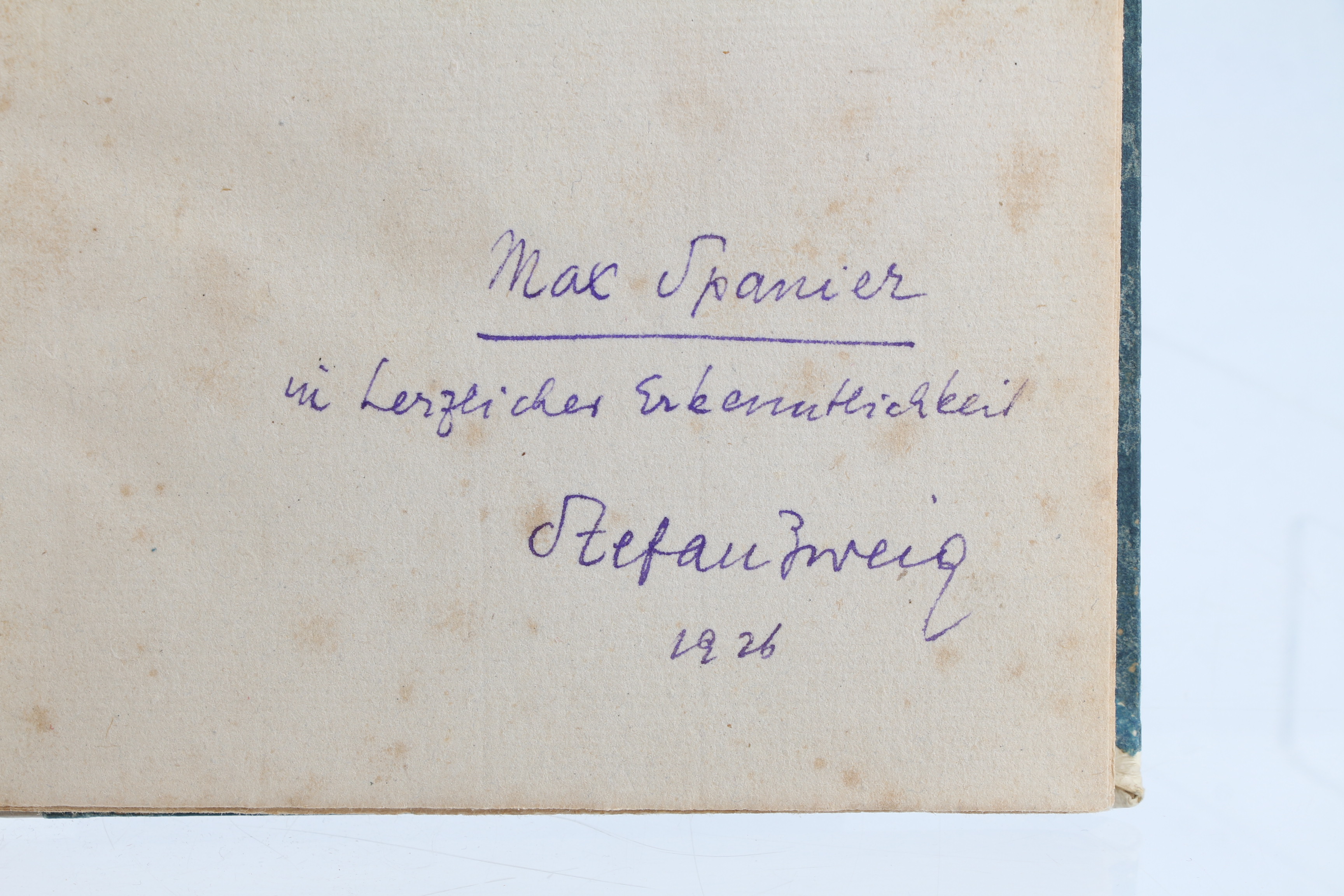
Erinnerungen an Emile Verhaeren
Stefan ZWEIG - Frans MASEREEL
- Publisher: Im Selbstverlag des Verfassers
- Date published: 1927
- Format: Hardcover
Im Selbstverlag des Verfassers | s. l. 1927 | 14.50 x 23 cm | reliure de l'éditeur | Ãdition originale imprimée à 440 exemplaires numérotés. Ouvrage illustré de 7 bois de Frans Masereel. Reliure de l'éditeur en demi cartonnage façon vélin à petits coins, dos lisse, tête dorée, ex-libris encollé sur un contreplat. Rare envoi autographe signé de Stefan Zweig à l'écrivain Max Spanier qui disparut dans l'enfer de l'Holocauste : "Im herzlicher Erkenntlichkeit" ("Avec une sincère gratitude"). | [ENGLISH DESCRIPTION FOLLOWS] First edition printed with 440 numbered copies. Work illustrated with 7 wood engravings by Frans Masereel. Pubslisher's binding in half wove-style paper boards with small corners, top edge gilt, ex-libris glued to a paste-down endpaper. Rare handwritten presentation signed by Stefan Zweig to writer Max Spanier who disappeared during the hell of the Holocaust: "Im herzlicher Erkenntlichkeit" ("With sincere gratitude"). *
librairielefeufollet-4817.65-bf8e4f9363345776e031a5212a285317
ë J'avais la chance de pouvoir acquérir le lot entieràunàjour avant que Bayreuth envoyait une personne de confiance û Ã⢠Signed autograph letter addressed to Alfred Cortot and his wife about Richard Wagner's manuscript collection

ë J'avais la chance de pouvoir acquérir le lot entieràunàjour avant que Bayreuth envoyait une personne de confiance û Ã⢠Signed autograph letter addressed to Alfred Cortot and his wife about Richard Wagner's manuscript collection
Stefan ZWEIG
- Date published: 1937
Londres [London], 1937. Fine. Londres [London] 26 décembre 1937 | 17.90 x 22.90 cm | une feuille | Signed autograph letter to Alfred Cortot and his wife about Richard Wagner's manuscript collection: ""I was lucky enough to be able to acquire the entire lot one day before Bayreuth sent a trusted buyer"". London 26 December 1937, 17.9x22.9cm, one leaf. Autograph letter signed by Stefan Zweig to Alfred Cortot, two pages on one sheet written in violet ink. An outstanding autograph letter in which the avid collector informs his friend Alfred Cortot of his acquisition of unpublished manuscripts of Wagner. Alfred Cortot himself owes his career as a conductor to his early discovery of the German composer. Cortot shared with Zweig his ""almost tyrannical bewitchment [suffered] with as much intoxication as fervor"" for the composer. Zweig, who spoke of his collection as ""more worthy of surviving me than my own works"" (The World of Yesterday: Memories of a European, 1942), recounts for his friend the details of this incredible discovery of hundreds of forgotten leaflets, including Wagner's intimate correspondence, handwritten scores and excerpts from opera librettos, including The Flying Dutchman, The Sublime Fiancée (or Bianca and Giuseppe), Die Feen, Das Liebesverbot (The Ban on Love) and a lost orchestral version of Rule Britannia. In December 1937, as he fled the Nazi regime and settled in London, Zweig became fascinated by the archives of a time when intellectual Europe was living in perfect syncretism. The writer takes a nostalgic look at the manuscripts of Wagner, who like him spent his youth travelling through the capitals of Europe: ""I was extraordinarily fortunate to be able to get my hands on a whole lot of Richard Wagner's musical and literary manuscripts from his early period (Leipzig, Magdeburg, Riga and Paris) during a short stay in Vienna"". Among these precious manuscripts is the extremely rare orchestral arrangement of the patriotic song Rule Britannia, which had been missing for more than sixty years. Sharing his passion for Wagner with his friend, the pianist Cortot, Zweig announced his discovery with the wonder so familiar to collectors when faced with an exceptional find: ""[...] the manuscript is the only one of its kind in the world that has been preserved. It contains things that will be of special interest to you, for example the complete translation (60 pages) of the French version (unpublished (I believe) of the text of the ""Liebesverbot"") entirely in Wagner's hand, as well as the manuscripts of a vaudeville song ""Descendons la Courtille"" (which he performed in his darkest moments) [...] almost thirty pieces of the highest interest and precisely from the rarest period. All this was hidden for 50 years in a private collection and I was lucky enough to be able to acquire the entire lot one day before Bayreuth sent a buyer"". The letter is a fascinating account of Zweig's parallel life, which had earned him a reputation as an accomplished collector. His collection also inspired one of his most beautiful short stories, The Invisible Collection (die Unsichtbare Sammlung) and a pioneering essay in the Deutscher Bibliophilen Kalender (The Autograph Collection as an Art). His hundreds of historical, musical and literary autographs from the Middle Ages to the 20th century were carefully catalogued and collected in the library-museum of his house in Kapuzinerberg: ""In this library, a 'place of worship', he also exercises a real activity as an expert in autographs [...]. ...] The library will attract a number of distinguished scholars, sometimes accompanied by their assistants, who will not hesitate to return to work there quietly for days or even weeks at a time"" (Stefan Zweig, le voyageur des mondes, Serge Niemetz). With this acquisition, Zweig sees the dream of every collector come true. After two years of exile in England, Zweig returned to Vienna in time to purchase these exceptional documents from Bayreuth's emissaries, who had already built up
rarebookslefeufolleteditionoriginale-9499.81-c2a3098a3b803909a68f5ee56931917e
« J'avais la chance de pouvoir acquérir le lot entierunjour avant que Bayreuth envoyait une personne de confiance » Lettre autographe signée adressée à Alfred Cortot et son épouse à propos du fonds de manuscrits de Richard Wagner
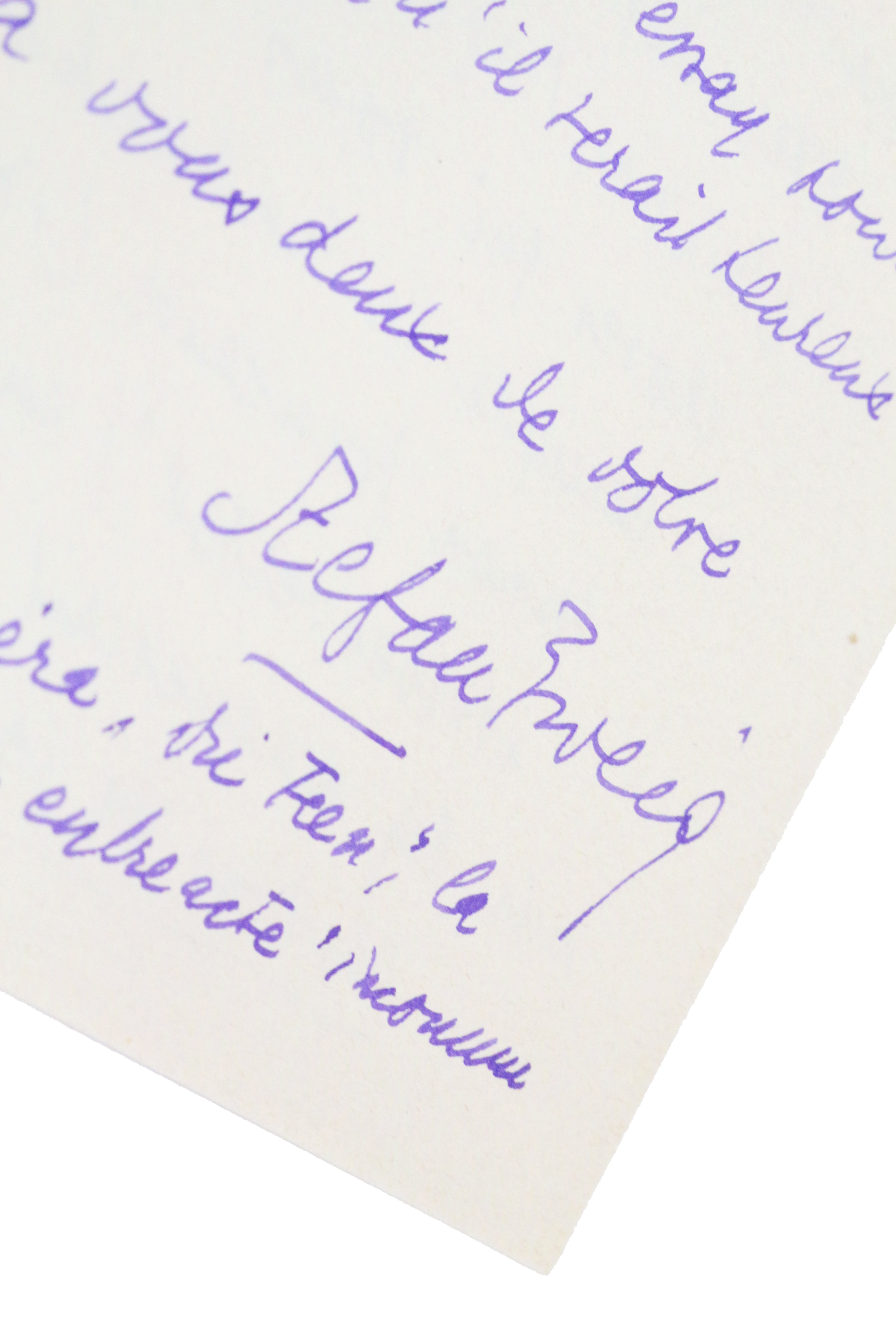
« J'avais la chance de pouvoir acquérir le lot entierunjour avant que Bayreuth envoyait une personne de confiance » Lettre autographe signée adressée à Alfred Cortot et son épouse à propos du fonds de manuscrits de Richard Wagner
Stefan ZWEIG
- Date published: 1937
Londres 26 décembre 1937 | 17.90 x 22.90 cm | une feuille | Lettre autographe signée de Stefan Zweig adressée à Alfred Cortot, deux pages sur un feuillet rédigées à l'encre violette. Superbe lettre autographe dans laquelle le fin collectionneur fait part de son acquisition de manuscrits inédits de Wagner à son ami Alfred Cortot qui lui-même doit à sa précoce découverte du compositeur allemand, sa carrière de chef d'orchestre. Cortot partageait en effet avec Zweig son « envoûtement quasi tyrannique [subi] avec autant d'ivresse que de ferveur » pour le compositeur. Zweig, qui parlait de sa collection comme « plus digne de me survivre que mes propres uvres » (Le Monde d'hier, 1942) refait pour son ami le détail de cette incroyable découverte de centaines de feuillets oubliés, comprenant de la correspondance intime de Wagner, des partitions et extraits de livrets d'opéras de sa main dont Le Hollandais volant, La sublime fiancée, Les Fées, La défense d'aimer (ou La Novice de Palerme) ainsi qu'une version orchestrale perdue de Rule Britannia. En ce mois de décembre 1937, alors qu'il est réfugié à Londres fuyant la terreur brune, Zweig s'enthousiasme pour des archives d'un temps où l'Europe intellectuelle vivait en parfait syncrétisme. L'écrivain pose un regard nostalgique sur les papiers de Richard Wagner, qui, comme lui, a passé sa jeunesse à parcourir les capitales européennes : «J'ai eu la chance extraordinaire de pouvoir mettre la main pendant un petit séjour à Vienne sur tout un lot de manuscrits musicaux et littéraires deRichard Wagnerde sa première époque (Leipzig, Magdebourg, Riga et Paris)». Parmi ces précieux manuscrits, se trouve entre autres le rarissime arrangement orchestral du chant patriotique anglaisRule Britannia, disparupendant plus de soixante ans. Partageant sa passion de Wagner avec son ami le pianiste Cortot, il lui annonce sa découverte avec cet émerveillement si familier aux collectionneurs devant une trouvaille exceptionnelle :" [.]Il contient des choses qui vous intéresseront spécialement par exemple la traduction complète (60pages) la version française (inédite (je crois) du texte du "Liebesverbot")entièrement de la main de Wagner, puis les manuscrits d'une chanson de vaudeville "Descendons la Courtille"(qu'il faisait dans sa misère la plus noire) [.]presque trente pièces du plus haut intérêtet justementde l'époque la plus rare. Tout cela était caché pendant 50 ans dans une collection privée et j'avais la chance de pouvoir acquérir le lot entierunjour avant que Bayreuth envoyait une personne de confiance". La lettre constitue un fascinant témoignage de la vie parallèle de Zweig, qui s'était forgé une réputation de collectionneur éclairé. Sa collection lui a par ailleurs inspiré une de ses plus belles nouvelles,La collection invisible (die Unsichtbare Sammlung) ainsi qu'un essai pionnier dans leDeutscher Bibliophilen Kalender (De la collection d'autographes considérée comme un art). Ses centaines d'autographes historiques, musicaux et littéraires du Moyen-Age au XXe siècle, étaient soigneusement répertoriés dans des catalogues et rassemblés dans la bibliothèque-musée de sa maison du Kapuzinerberg : "Dans cette bibliothèque, "lieu de culte", il exerce aussi une véritable activité d'expert en autographes [.] La bibliothèque attirera un nombre de savants professeurs, parfois accompagnés de leurs assistants, qui n'hésiteront pas à revenir y travailler au calme des jours d'affilée, voire des semaines" (Stefan Zweig, le voyageur des mondes,Serge Niemetz). Avec cette acquisition, Zweig voit se réaliser le rêve de tout collectionneur. Exilé depuis deux ans en Angleterre, et bravant la progressive fermeture des frontières de l'Europe, Zweig retourne à Vienne à temps et fait l'achat de ces documents exceptionnels, soustraits aux émissaires de Bayreuth qui rassemblaient déjà à l'époque une importante collection aujourd'hui gérée par le musée et la fondation Wagner. On reconnaît également da
librairielefeufollet-9635.30-a7ad4bdf394d1d936f1b518bd2b87db4
